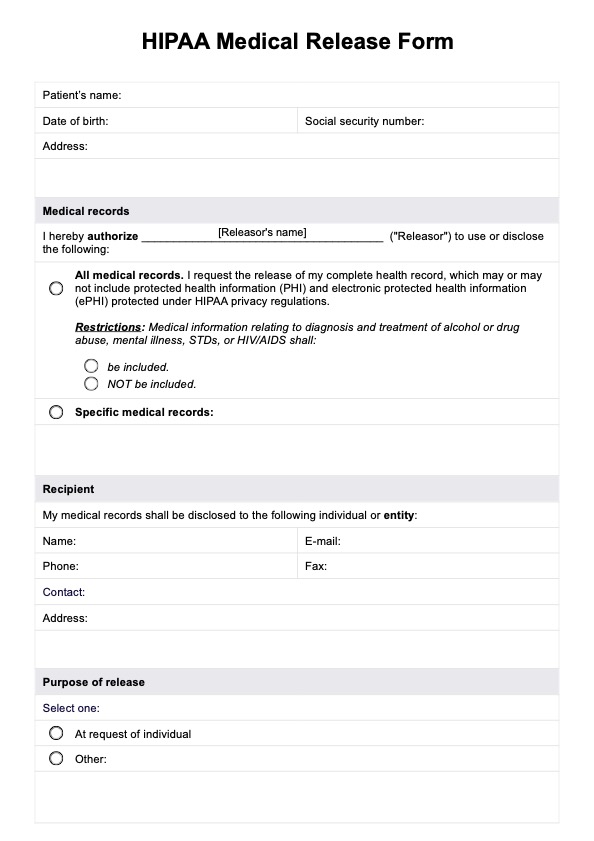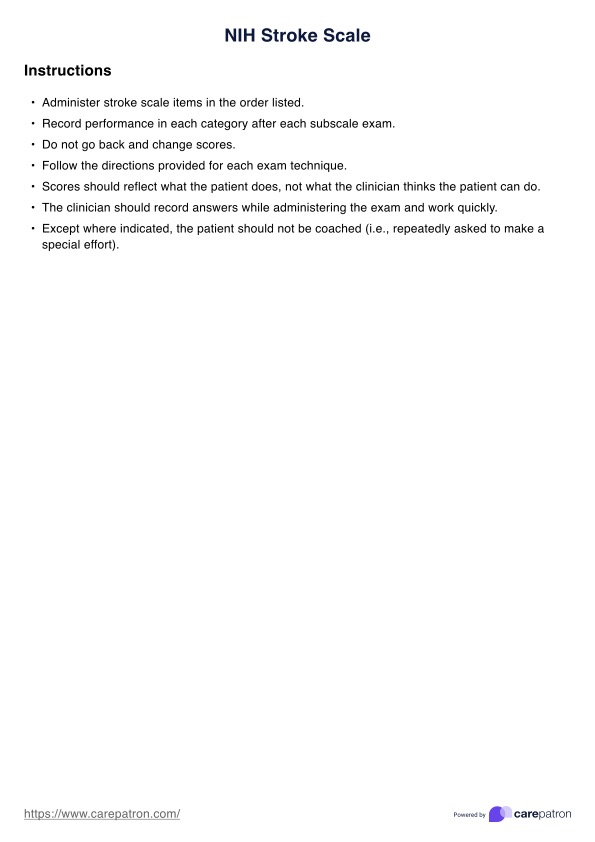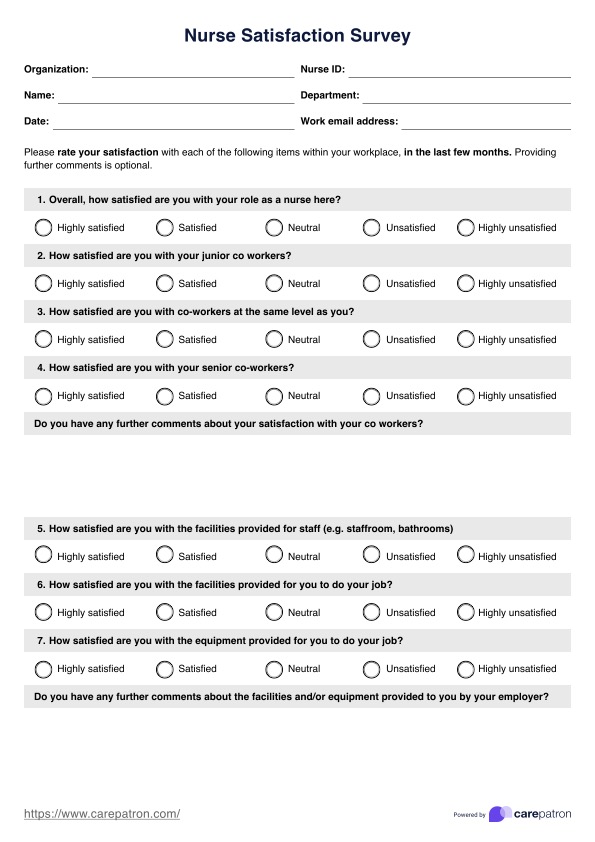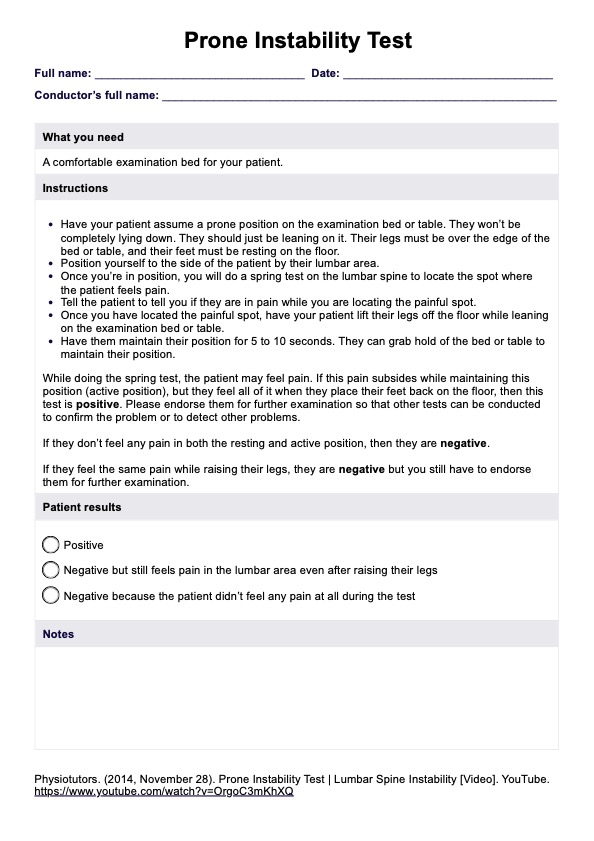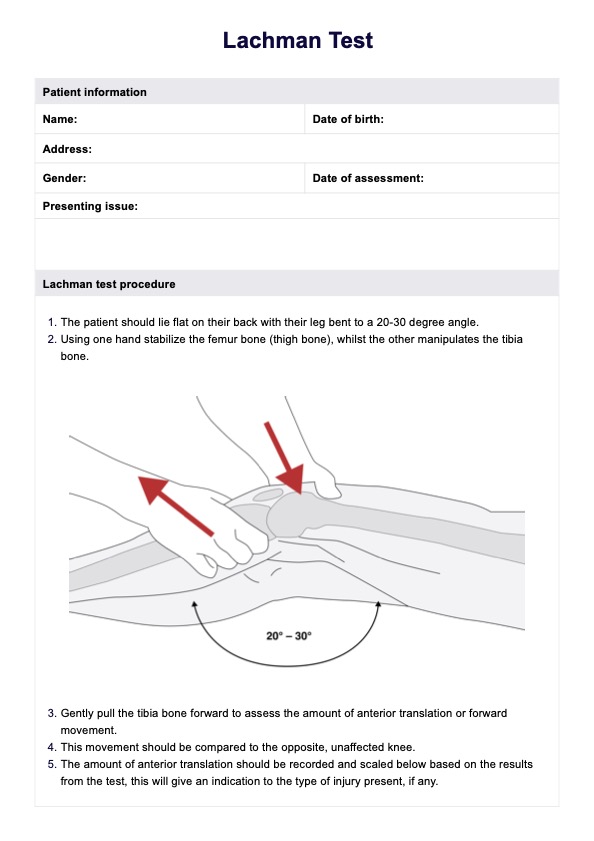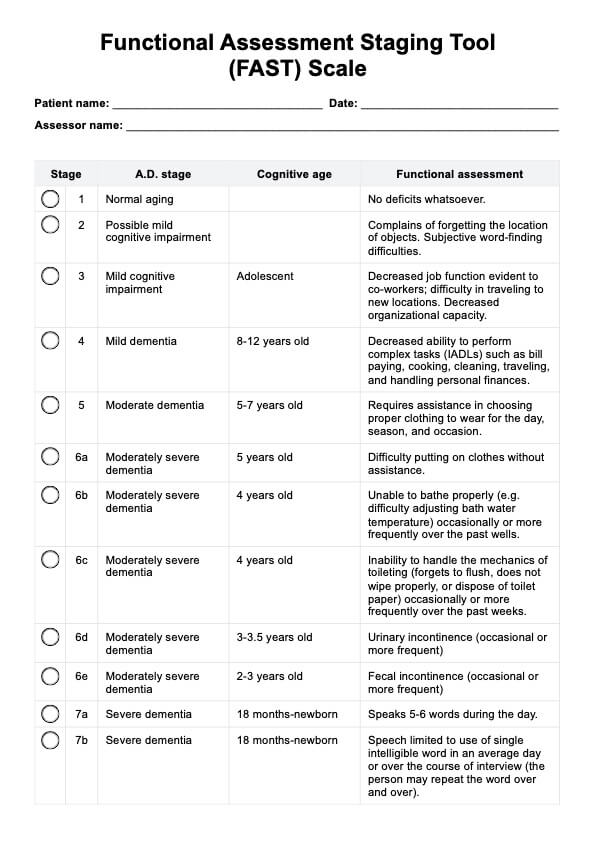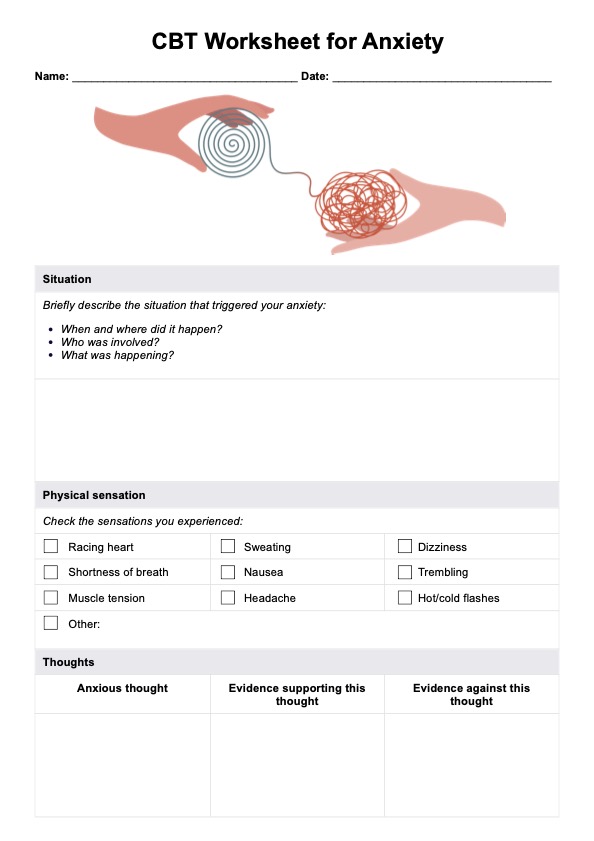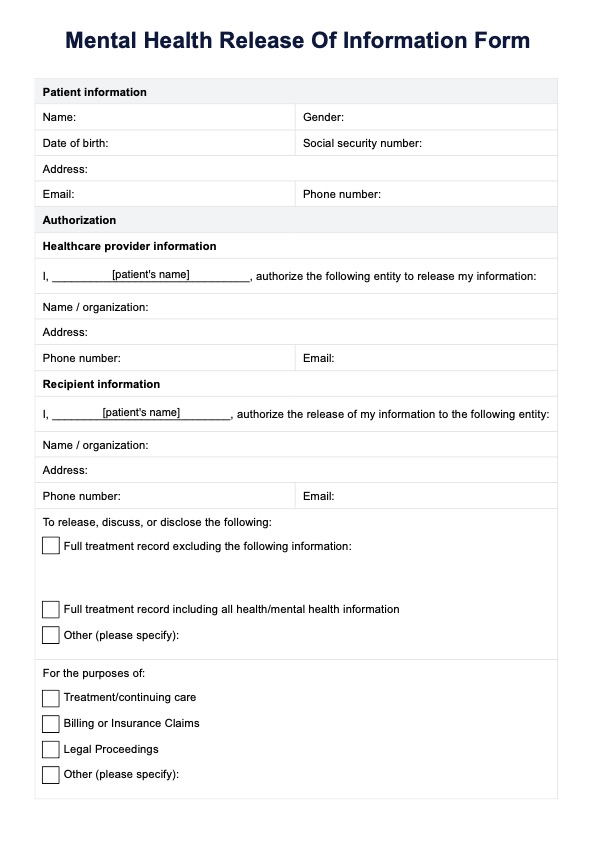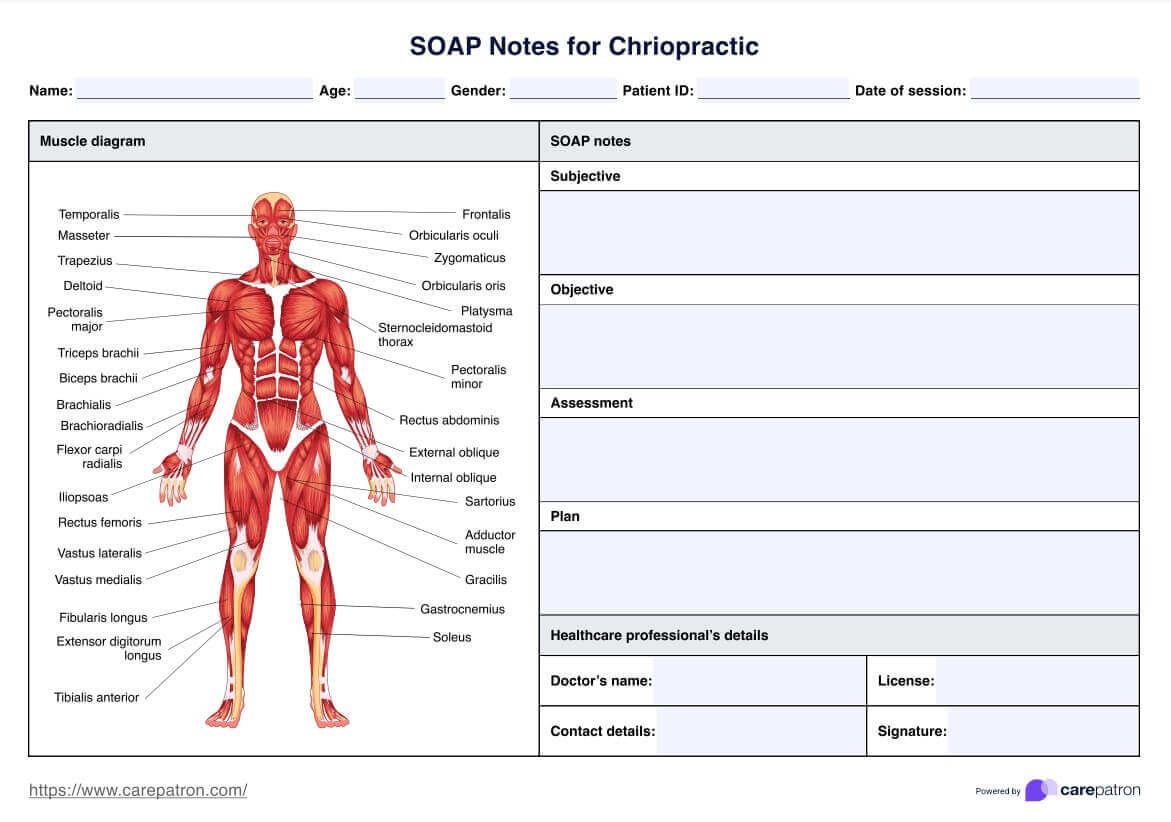Illness perception refers to how individuals understand and interpret their illness, influencing how they cope and engage with treatment.

Brief Illness Perception Questionnaire
Get access to a free Brief Illness Perception Questionnaire (B-IPQ). Use the template to measure illness perception in your patients.
Use Template
Brief Illness Perception Questionnaire Template
Commonly asked questions
There are two alternatives that measure the same scope of perceived illness in individuals. These are the Illness Perception Questionnaire (IPQ) and the Illness Perception Questionnaire-Revised (IPQ-R).
Negative perceptions can lead to prolonged sickness and future disability, while positive perceptions can improve health outcomes.
EHR and practice management software
Get started for free
*No credit card required
Free
$0/usd
Unlimited clients
Telehealth
1GB of storage
Client portal text
Automated billing and online payments

